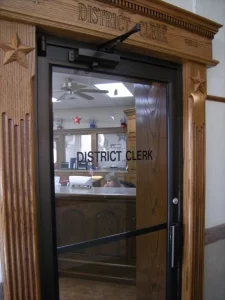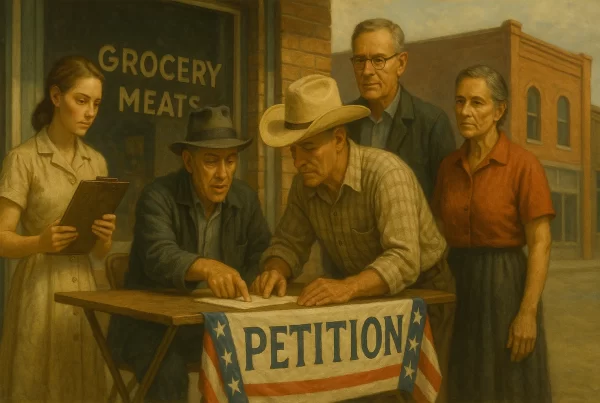District clerks in Texas are elected officials that serve the court system, coordinating the jury selection process and keeping custody of court records.
Each of Texas’s 254 counties has a district clerk, except some counties with a population less than 8,000, which have a joint county/district clerk. Each district clerk serves one or more district courts. Counties with several district courts may be served by a single clerk.
Duties of District Clerks
District clerks perform the following main duties:1
- Record the acts and proceedings of district courts
- Keep an index of the parties to all suits filed in the court(s) that they serve
- Coordinate the jury selection process
- Maintain records of juror service and disburse jury fees
- Respond to records requests from members of the public
- Collect filing fees
District clerks are also custodians of the seal of the district court that they serve. The seal is used by the clerk to authenticate official acts of the court. Additionally, district clerks fulfill several miscellaneous functions, including processing passport applications.
District clerks are typically assisted by one or more deputy clerks and other employees.2 In large counties, the district clerk may supervise a staff of several hundred.
Elections and Qualifications
District clerks are elected by the qualified voters of each county and hold office for four years. They must meet the following qualifications at the time of appointment or election:3

- U.S. Citizen
- resident of Texas for at least 12 consecutive months
- resident of the county for at least six consecutive months
- registered to vote in the county
- at least 18 years of age
- not have been finally convicted of a felony from which they have not been pardoned
- not have been determined by a court to be mentally incapacitated.
Vacancies
If a vacancy occurs in the office of district clerk, the vacancy is filled by the district judge of the county. If a vacancy in the office of district clerk occurs in a county that has two or more district courts, the vacancy is filled by agreement of the judges of the courts. If the judges cannot agree on an appointee, then a special election is held to fill the vacancy.4
County Clerks vs District Clerks
District clerks serve the district courts, which handle felony cases and major civil litigation, while county clerks serve the county courts, which handle family cases and misdemeanors. Both are elected, unless appointed to fill a vacancy. In counties with fewer than 8,000 people, the roles may be combined unless voters opt for separate offices.



